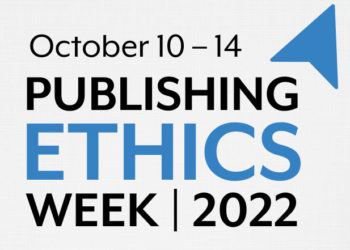Dr. Alondra Nelson graciously responded to our queries about the new US OSTP memo concerning public access to the results of federally funded research, and on Tuesday we published her responses in full. After rounding up some reactions to the memo and with the benefit of Dr. Nelson’s responses, we’d like to offer some thoughts of our own. We’ve focused here on the issues that we identified as critical – in fact, so important that we made them the basis of our questions to OSTP.

The shift from mandatory (the language of the Holdren memo) to recommended public access (the language of the Nelson memo).
(Rick) I was disappointed that Dr. Nelson initially declined to answer our question on this topic directly. However, by simply referring back to the language of the memo (repeating the word “should”) and then pivoting to a discussion of how the memo was developed, she seemed to confirm what I originally believed: that the change in language is intentional, and that this new memo represents only a recommendation where the old one represented a mandate. To be clear: if policies mean what they actually say, then the new OSTP memo represents a set of recommendations rather than requirements. This, it seems to me, is a very big deal. And now my questions are:
- Why the shift from mandate to recommendation?
- Will that shift be acknowledged in the scholcomm community?
- Will funding agencies actually treat these new terms as optional?
(Karin) Who doesn’t want openness and accessibility?! But as we’ve long discussed, it’s how you get there and at what cost for whom that matters. I wondered whether this language is meant to provide more flexibility or is simply making assumptions about the direction of travel for open access. Certainly some responses (like from SPARC) seem to read the memo as mandating rather than recommending.
(Rick) Agreed, but I seriously wonder to what degree such public interpretations on the part of advocacy groups represent a good-faith interpretation, and to what degree they represent a desire to shape the public narrative – like football players frantically signaling the preferred outcome of a contested call – and maybe even to distract from the reality of a policy that has suddenly become much less directive than it used to be. I certainly can’t find anything in the language of the document itself to support the belief that it represents an actual mandate, and I find plenty in it to support the belief that it represents a nonbinding recommendation. Dr. Nelson was given the clearest possible opportunity to correct this impression, and chose not to. Again, this is big news, though it’s not clear how much attention it will get.
(Karin) I hope it is offering maximum flexibility to agencies that serve widely different research communities. My principal concern here is with the National Endowment for the Humanities. The NEH has a tiny fraction of the budget of the National Science Foundation ($275m vs. $10.3b – and I can’t believe we think the humanities are only that fraction as important as science to human knowledge and wellbeing). The way that the NEH and NSF, just to choose two agencies of many, fund research is dramatically different. The “outputs” are dramatically different. I hope that this difference is being attended to rather than flattened out as so much monolithic open access policy has been in other contexts.
(Rick) We should note here that while in the process of composing this post, we received some follow-up communication from Dr. Nelson and her Office on the evening of Tuesday, 11 October. This led to a brief exchange in which the Office confirmed that the guidance document does, in fact, represent a non-binding set of recommendations, not a mandatory directive. As I said above: this is a very big deal.
OSTP’s view on whether open science creates any risks as well as benefits
(Rick) Dr. Nelson simply declined to answer this question at all. Instead she responded by delineating the benefits of open science. Again, this is disappointing, and it’s the kind of answer one would expect more from an advocate than from an analyst. In the wake of the COVID crisis in particular, however, such a position seems completely untenable. While there were undoubted benefits to both speeding up the generation of COVID-related science and opening up access to it during the crisis, there were also many examples of greater speed and openness creating unintended and potentially harmful consequences. In a highly complex ecosystem like scholarly communication, disruptive change (such as a sudden shift to highly open research and publishing practices) will always bring a mix of positive/intended and negative/unintended consequences, and it seems to me that to pretend otherwise is both unrealistic and – especially where public health is concerned – dangerous.
(Karin) I agree that to see only benefit is to actually take on even more risk. That is, if you’re not allowing for risk you’re not working to mitigate it either. Some of the risks I see concern the continued reliance on volunteer labor – not to review scholarship, but to edit and publish it – in an environment for the humanities that is increasingly bleak. My own view is that publishing, like health care, should almost always be non-profit. But there are real costs to employing highly skilled people to do the work that takes research into publishable — meaning legible and digestible and thus actually useful – form. I am a huge admirer of Dr. Nelson. Her dedication to equity in science and her leadership both as a scholar and in her previous and current roles are admirable. But I think the potential barriers that open access policies can create among researchers and ultimately for the public we all want to reach are very real and concerning.
(Rick) This continues to be one of the most difficult and contentious topics in scholarly communication: if we’re not going to support the legitimate costs of publication by charging for access to content, then what should we charge for and who should pay – and by what mechanism(s)? Also, which costs of publishing are “legitimate”? There’s a pretty wide range of viewpoints on that question alone.
(Karin) So much of this, I think, stems from different perspectives and positions. People understand the field or discipline or professional position they’re in, but not necessarily any others – and that can lead to serious misunderstanding of how research is funded and what publishers do, among other things. Those “legitimate costs” debates, for example, might refer to dramatically different kinds of and scale of costs. I reviewed the list of OSTP’s external stakeholder consultations that Dr. Nelson referenced in her response to us. I saw commercial publishers, science society publishers, and some infrastructure groups, among others, but I didn’t see university presses – just to take one example of nonprofit, highly skilled human labor costs of publication.
What Dr. Nelson and her team see as the most important and meaningful benefits of open science
(Karin) I assumed they would point to the rapid development of the COVID vaccine as a benefit of open science, but I think there is a lot to Dr. Nelson’s answer that I’d like to hear more about. Three assertions in particular stand out: 1. Openness advances “all areas of knowledge.” 2. When research is widely available to other researchers and the public, it can provide policymakers with tools to make critical decisions. 3. Open research meets the requirement for government accountability and transparency. I want to know how all three of these apply to humanities scholarship. It is not enough to refer to science and be done with it. I don’t think “all areas of knowledge” is in this memo by mistake.
(Rick) That’s a good point, and one I hadn’t considered. Embarrassingly, it hadn’t fully registered with me that the White House Office of Science and Technology Policy is issuing guidance that applies to funding for disciplines well outside the realms of, you know, science and technology.
Potential impact of the policy changes on non-profit scholarly publishers
(Karin) If these are recommendations only, then that assumes agencies are free to adapt them to their research communities in ways that best meet the challenge of public access. As we’ve noted time and again – and as Robert wrote about mathematics last week – if your discipline is not primarily serviced by large volume commercial publishers, it likely means a couple of things: society publishing, other nonprofit organizations, and generally low cost research and publishing. We should be encouraging rather than creating more barriers to exactly this model.
(Rick) The good news here is that Dr. Nelson and her Office have now made it clear that this guidance is, in fact, a nonbinding set of recommendations, and that agencies are in fact able to adapt them as needed. What I find interesting – odd – is that although the Holdren Memo was written as a mandate, its terms were also explicit about allowing a certain amount of flexibility in implementation, and about the need for agencies to work in consultation with other stakeholders, including publishers. The Nelson Memo is written as a recommendation only, but at the same time has stripped out all the language about discipline-specific adaptations and consultation with publishers and disciplinary organizations.
Implementation challenges.
(Karin) I see lots of challenges for the humanities but want to point to what I think is by far the most important for this policy or any humanities funder open access policy or guidance: what funding threshold triggers the policy? The National Endowment for the Humanities (NEH)*, for example, funds summer research for faculty, or year-long support for lots of scholars including those doing commercially published work. But neither the summer funding or the year of support would constitute the majority of funding needed to write a book in my field (history). In the case of a prolific scholar, for example, who published a book last year, a year of ACLS funding, a year of NEH funding, university funding, and multiple years of research trips including small grants from research libraries all contributed to the final work. Would the NEH funding –federal funding – trigger the public access requirement? The memo, because it is science-driven, refers to journal articles. But that is not the apex publication in many fields. But even so, you would have a hard time sorting out which portion of a history journal article’s research was supported by the NEH as opposed to other funding sources or unfunded time. Would the scholars funded under the NEH public scholars program specifically designed to support public facing work be required to publish in open access rather than in the trade presses that give their work more potential for a general audience? I think not, and rather that the NEH should be able to make some requirement for a public-facing and freely available component to the scholars work. I understand that kind of idea cuts against the argument that it is the scholarly version that should be available to all, but I think it meets the basic principle of public access – and for the public good.
Whether the posting of preprints would constitute sufficient compliance with the new policy
(Rick) The response to this question in our interview reiterated one element of the new guidance that I had initially overlooked: that for deposit to be compliant with the policy, it must be in an “agency-designated (repository).” This would indicate that only a subset of institutional repositories are considered an acceptable locus for reports on funded research, and that those repositories will be selected by the funding agencies, not by the authors. This has potentially serious implications for the ongoing viability of institutional repositories of the kind hosted by college and university libraries. Of course, since OSTP has confirmed that the whole guidance document constitutes a set of recommendations rather than requirements, this point may seem to be mostly moot. But that only applies at the level of the OSTP guidance itself; in response to the guidance, funding agencies are going to set rules that absolutely are binding on those whose work they fund. So if Agency A says “future funding from us will be contingent on factors that include the placement of your work in one of the repositories on this list,” that will certainly be a binding condition.
(Karin) Last week we noted that Brett Bobley, CIO for the National Endowment for the Humanities and the Director of the Office of Digital Humanities, responded to a query on Twitter about APCs and repositories with a reference to (and a link to) Penn State Libraries guide to green OA. He noted that NEH would have to “ work closely with OSTP and other agencies to figure out an actual policy. But it sure sounds like green OA.” The Penn State guide refers to the university’s repository: “ScholarSphere is Penn State’s institutional repository — a repository service for research and scholarly work produced by the university community. Through ScholarSphere, Penn State researchers — faculty, students, and staff alike — are able to share their work on a worldwide scale and be assured of its long-term preservation and thus ongoing access.” Will such library repositories be “agency-designated?” If they are, that comes with its own challenges. The costs to universities of these local repositories, and the challenges they pose for discovery, have been widely discussed. But if they are not, would an agency be inclined to instead create its own – or designate a commercial repository? I agree this may be moot. But I also think that like with many unintended consequences of open access policies this really bears a long, close look.
Karin and Rick welcome other thoughts, observations, and analyses – send in your comments!
* (Karin) Full disclosure (and public information!) I am the PI on an NEH grant for fellowships from the library I direct, and I have been the PI on the same type of NEH grant in my previous position.
Discussion
26 Thoughts on "Thoughts and Observations on the OSTP Responses to Our Interview Questions"
I think we’d be remiss to think that a “should” means that agencies have independence here. There are lots of levers in policymaking that make should mandates (and I’m lacking access to whatever additional information you received outside the interview). But, leaving that side, the should is for the agencies. If an agency then indeed does what they “should,” what are you anticipating? Should or will language for authors?
I agree that the word “should,” on its own, isn’t dispositive (even given that it replaces the word “shall” in the Holdren Memo). What’s much more so is the word “recommends” in the Nelson Memo, which replaces the word “directs” in the Holdren Memo. In policy documents that affect the disposition of billions of dollars in funding, I would imagine that such shifts in language are rarely accidental.
Because we wanted to be sure we weren’t missing something in the original response to our interview questions, Karin and I posed this question again, as directly as we could, in the course of a follow-up exchange that was initiated by the OSTP. We asked “Does the current memo represent a set of requirements that are binding on US funding agencies, or is it a set of recommendations that may be adopted or not, or adapted for different research communities served by the different agencies?” The answer (from press officer Andres Anzola) was “Dr. Nelson would point you back to the Memorandum that contains answers to your questions: ‘OSTP _recommends_ that federal agencies, to the extent consistent with applicable law…’” (emphasis his). So the answer seems pretty clear: the guidance means what it actually says, and what it actually says is that it constitutes a set of recommendations rather than requirements.
Speaking of not answering the question asked …. ? 🙂
Actually, I’m citing an example of the question being answered. But you’re right, I failed to answer the question you asked me, which was “If an agency then indeed does what they ‘should,’ what are you anticipating? Should or will language for authors?”. My answer is: since the guidance document apparently only represents a recommendation, I hope that agencies will implement its provisions to the degree that they feel it makes sense to do so. If “should” language appears in the context of a non-binding recommendation, then the responsible thing is to decide for oneself what one “should” do, and proceed accordingly.
Re OSTP scope. I don’t see this outside their remit at all. The “mission of OSTP is to maximize the benefits of science and technology to advance health, prosperity, security, environmental quality, and justice for all Americans.”
This memo is clearly about maximizing the benefits of technology (perhaps to a fault re not engaging the concerns that might exist more directly). Health, prosperity … and especially justice … advancing these are not only a matter of STM. I believe we are impoverished if the scholarship of the social sciences, humanities and arts aren’t brought to of these issues.
P.s. I’m posting two initial comments so any replies can thread more easily.
“Health, prosperity … and especially justice … advancing these are not only a matter of STM.” Obviously I agree. In the world I devised we’d have historians in every single research project and explicitly historical projects on parallel with or in consultation with research plans in every discipline. In terms of OSTP — Alondra Nelson is a social scientist; OSTP has been thinking broadly about how social science in particular can be brought to bear on issues of health, etc. But in the case of this memo it’s about the research, and the differences in research from source to process to the intricacies of how peer experts engage with work in progress and then into publishing are really important. If this was the office of Research for the Public Good with budgets that supported robust research across disciplines? Great! But it’s not. OSTP is primarily about science qua science and that’s my point.
I’d agree that we typically see the focus on science but the Holdren memo didn’t exclude the humanities qua humanities did it?
I read the exclusion of smaller $$ agencies as an exclusion.
That definitely excluded humanists funded by those agencies. No question. But, that seems different to me than excluding them as humanists per se.
I did a quick search in Dimensions.ai for articles since indicating NSF as funder and pulled some of the coded research fields:
Philosophy and Religious Studies – 330 articles
History and Philosophy Of Specific Fields – 191 articles
Philosophy – 66 articles
Art History, Theory and Criticism – 35 articles
I hope it is clear that I’m not saying that the expansion to NEH is meaningless. I think it is significant. But, perhaps there is something to be learned about how humanists might be impacted by this memo by looking at those who were impacted by the previous one?
I guess my question is why an office charged with “maximiz(ing) the benefits of science and technology” has policy oversight of funding agencies that support the arts and humanities. I mean, apparently it does, so my puzzlement probably doesn’t mean much.
I often wonder what it would look like for scholarly communications to work from the premise that research processes and communities are very different – and wouldn’t by default consider the scale of biomed in terms of costs and volume of outputs as the norm or that there is efficiency in that default.
Re “what it would look like for scholarly communications to work from the premise that research processes and communities are very different” … I think this is a positive of the OSTP memo/decentralized agency process vs the more universal approaches we see in Europe. These is at least some space for difference in how the US approaches this.
Is there any likelihood, do you thank, that the language / direction of the policy recommendation may be updated in the short term, given the appointment of Arati Prabhakar as Director of OSTP?
Call me a cynic if you wish, but I do not believe in “unintended consequences”. What they are is “unenunciated intentions”. Too many government officials subscribe to the idea that they can spur growth by tearing things down. Witness the entire Green New Deal rush to ban the only sources of energy that can fill current demand under the assumption that this will somehow make green energy systems more efficient and cost-effective in the short term.
I’ve not spoken to a single person at any agency who thinks this is an optional activity. Federal agencies do not routinely ignore OSTP guidance, and any such guidance goes through multiple rounds of review and comment with the agencies before it is released. Any problems or complaints would have been ironed out in such a process. I think it’s reasonable to assume that all affected agencies are on board with this policy and are actively working to implement it in the spirit of the Memo. Getting stuck wordsmithing the Memo seems a distraction to me.
No question that the language in this policy was carefully chosen and thoroughly vetted before it was released. That’s exactly why I think it’s important to pay attention to what it actually says — particularly in light of the fact that OSTP representatives themselves have expressly (and on the record) confirmed that it means what it actually says.
Of course, whether agencies will interpret it as something other than a non-binding recommendation is a separate question, one that will be complicated further as they’re influenced by lobbyists who are already working to characterize the guidance as something other than what its authors say it is. And I don’t see any reason to believe that agencies will “routinely ignore” the guidance. But the guidance itself clearly gives agencies leeway to adapt their plans as they see fit (which is not the same thing as “ignoring”), and there’s nothing in the memo to indicate that the OSTP will reject plans that don’t conform to the guidance.
There is certainly flexibility in implementation — see the Holdren Memo and agencies that went with PubMed Central, started their own repository, or instead chose to work with CHORUS. But all fulfilled the spirit of the Memo, and that’s what will happen here, regardless of the details. Worrying about whether it’s a mandate or a recommendation is meaningless if all will treat it as a mandate.
As you point out Rick, it isn’t just the memo language that matters. It is response (lobbyists on all sides) and then whether there is technical capacity in place, rule-making processes, and the many, many levers of agency policymaking. And, it isn’t just OSTP involved — there are various other government offices that can take actions that would make the recommendation function like a requirement, regardless of what the specific language is. The memo’s repeated mention of the Office of Management and Budget with respect to the plans highlights this. It is influential that President Biden speaks to this memo as well.
So, yes, we should read the memo very carefully — I see people of all persuasions reading “into” the memo what they want it to say rather than what it does and not being clear when they are commenting re what the memo says vs what they hope happens. (President Biden doesn’t seem particularly concerned about commercial publishers. I’m recalling the engagement between the White House and RELX for the Cancer Moonshot – https://www.elsevier.com/connect/archive/at-cancer-moonshot-summit-elsevier-presents-plans-for-benchmark-report).
So, while the memo may be the catalyzing source of agency response, it will in no way be the only force shaping things. Indeed, this very post and comments will likely be part of those forces (though probably minimal in the grand scheme of things!). Perhaps it is less wordsmithing then, David, and more moving the questions re, given the memo says recommends but then all the other factors, what can we expect in specific agency response? I would love to read analytic essays on, for example, what the NEH response is likely to be. Or, say IMLS, which is one of my own funders and so, while I have views on what I’d like to see, I’d really like to understand what factors will be considered and what seems likely to emerge so I can judge the best approach for engaging with that process.
Anyone interviewing NEH leaders yet?
The 2013 memo came as a policy at the end of a process which is why it was more definitive on more points. The Nelson memo kicks off a process, which is why it doesn’t answer all the questions you want answered. Those questions will be answered through implementation, deliberation, and a give and take with and across stakeholders over the next two years. To the degree that it is a mandate or a recommendation, it is Administration policy. It comes from the White House and the politically appointed leadership at the agencies will implement it accordingly. But just as this memo changes policy from the last, a future memo from another Administration can do the same, and Congressional action can override any executive memo whether through new law or appropriations language which is also technically new law.
So you’re saying that in the context of a White House memo, a mandate and a recommendation are the same thing? (If so, why the change in terminology from one OSTP Memo to the next?)
As for our questions: I’m not sure it makes sense to say that our questions “will be answered through implementation, deliberation, and a give and take with and across stakeholders over the next two years.” Certainly I see no reason why questions like “Does this memo represent a recommendation or a mandate?”, “Do you have concerns about the potential impact of this policy on non-profit scholarly publishers?”, and “Does increased openness in science and research pose any risks, or is it all benefit?” can’t be answered prior to a two-year process of implementation.
The first question should be easily answered and obvious. It is a very strong recommendation with political force and administrative force but it is not a regulation or a law so it can’t be a mandate and it doesn’t bind any administration going forward. The other ones are harder because answering the question raises more new questions than it answers and those questions will be asked and answered as the process moves along. The OSTP is a small agency with a small staff. They have what they believe are the right answers to your questions in their head but the process is what will give answers to those questions the authority it needs to matter more than opinions. Also the answers are obvious, yes they have concerns, no policy is all benefits and in any area of governance there are always winners and losers relative to the status quo when policy changes, and yes there will be challenges to ensure the continuation of the financing of publishing niche areas of research or areas without obvious commercial return. But saying any of those things before there is a process in place for deliberating a resolution of those challenges would not move anything forward. They did something huge – made one non-negotiable assertion – public research should be made publicly available upon completion. The rest is negotiable and exceptions are possible. The assertion itself is already under attack and will be fought in Congress and elsewhere. But this is a huge a step forward and the initiation of a new chapter in American policy on research. OSTP won’t and can’t impose the answers on the rest of us. The community has to come together to help resolve them. It’s a democracy.
The first question should be easily answered and obvious. It is a very strong recommendation with political force and administrative force but it is not a regulation or a law so it can’t be a mandate and it doesn’t bind any administration going forward.
Interesting. So you’re saying the OSTP has no authority to create policy that binds the funding agencies? And wouldn’t this mean that therefore the Holdren Memo also was not mandatory, despite the fact that it “directed” agencies to follow its prescriptions?
The rest of your response makes it sound as if you’re speaking on behalf of OSTP — you certainly seem to have keen insight into the minds of those working there. Could you tell us who you are and how you know what that group is thinking?
Sorry, I have no special insight into the OSTP thinking but I served in the Senate for 13 years (Boxer, Obama, Kerry) and in the Obama Administration at USTR and State. I worked on these issues for those Senators. So I know the clearance process for answering questions and the process for policy guidance and implementation. I’m just a government relations consultant now with clients across multiple issue areas including this one but not special in any way. The OSTP is the Administration lead on policy across agencies for how they execute their administrative power including grant making. They have the authority to tell the agencies what the Administration believes they should do or as in the case give general guidance with a goal and a deadline and that direction governs until there is a change in guidance or a new law. My principal point was to say that the questions you asked are good ones, the answers provided were what any administration would provide at this point in the process, and that the process itself will flesh out the answers to your questions. In fact, you should participate in it as it moves forward if you hope to shape it and have answers to those questions in mind.



